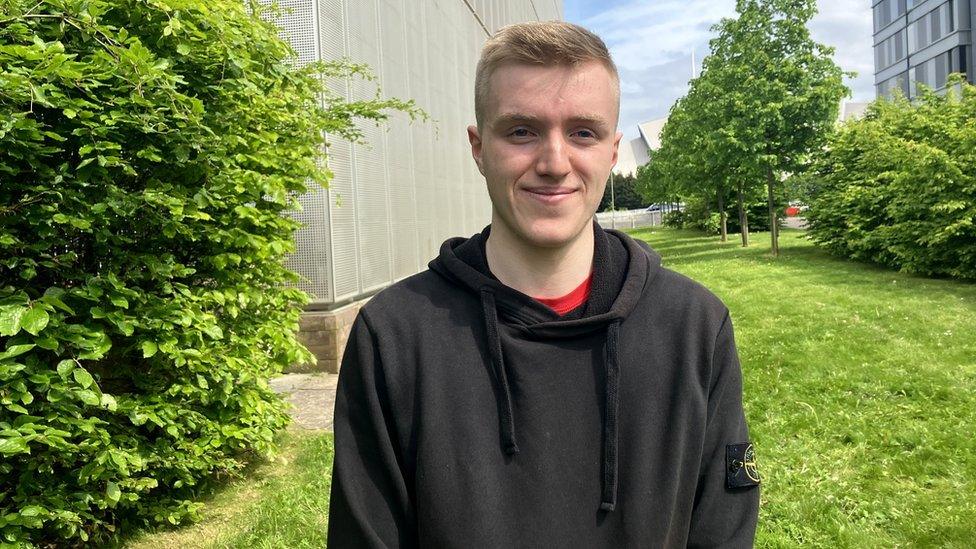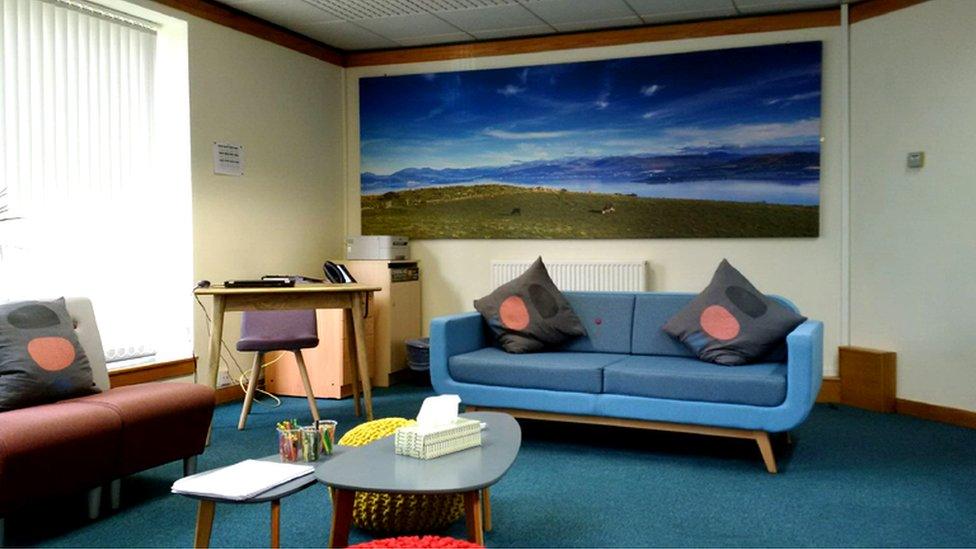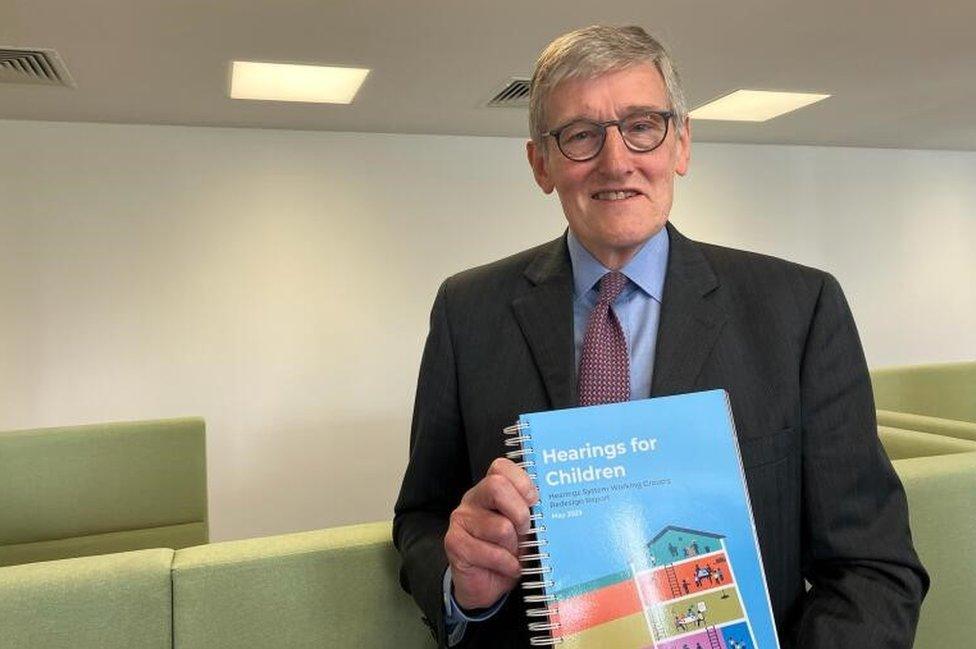Children's hearings urged to scrap volunteer model
- Published

Liam was one of the young people who contributed their views to the report
A radical shake-up of the children's hearings system has been recommended to the Scottish government.
The proposals, developed with input from young people, include replacing the traditional volunteer model with paid panel members.
Sheriff David Mackie, who led the working group, described his report as a "big moment".
The Scottish government said it would carefully consider the proposals and respond later in the year.
Children's hearings are legal meetings for young people aged under 18 who need help, support or protection.
They may be asked to attend a hearing if they have been in trouble with the police, or if there are concerns about their welfare.
They are currently held before a Children's Reporter and three volunteer panel members who decide what action to take.
The new blueprint, external puts children at the centre of the whole system, giving them a say in what happens to them. It also removes much of its formality.
It recommends that a hearing should consist of a salaried and highly-qualified professional chairperson accompanied by two trained and skilled panel members, remunerated at a daily rate.
It has been published by The Promise Scotland, external - the body responsible for ensuring the Scottish government's promise to care experienced young people is kept.
Among those who contributed to the review was 17-year-old Liam, who was involved in children's hearings from the age of five.
He contributed to the Our Hearings Our Voice project which shaped the report. Speaking on behalf of the Promise oversight board, Liam said it could be an intimidating environment for a child.
"It can be quite daunting going into a room full of adults, you are the only child there, and sometimes you may not even get to speak," he said.
"It's an adult table and you are just sitting there listening. The whole point of the panel is about the child and sometimes they don't get an input on a decision that is about their future."
"You are at the bottom of the table and everyone's at the top and you are just looking up," he added.
"It's daunting for a small child being surrounded by people who are talking about them as if they are not there."

One of the new, less formal hearing rooms in Greenock
Liam told BBC Scotland he was involved in several ideas which were recommended.
He explained: "Moving where the child sits - instead of sitting behind, they sit with the chairperson.
"And they have the same chairperson each time to build a relationship with the child so they feel more comfortable going to the panel.
"They will have someone there they can trust and they can build an emotional connection."
He said simple changes also go a long way.
Liam added: "Even the layout of the waiting rooms - they are more vibrant, they are comfortable. With couches rather than being bland and gloomy. Changing the layout of the rooms has a big impact."
He hopes his input will make things better for future generations.
"My own experience made me think I need to make change so nobody else needs to go through it. That's the motivation," he said.
"We need to get this right so children can go through the system with what they want and they are being heard. "

Former Sheriff David Mackie said the report sets the agenda for change
Former Sheriff David Mackie, who led the review, said it set the agenda for change.
He told BBC Scotland: "We are not messing about. This report represents the voice of the entire children's hearing community through the process of collaborative design that was used to bring it together.
"There will not be a better review. It's as good as it gets."
Mr Mackie said he hoped the new system would be a "truly non-adversarial, inquisitorial process".
Other key recommendations in the report include:
Specialist family sheriffs
Training in trauma, child development and communication for all decision-makers
Streamlined processes and better accountability mechanisms to ensure the legal orders happen in the way they are supposed to.
Fi McFarlane, from The Promise Scotland, said: "There will be challenges in making this vision a reality, but these recommendations align clearly with Scotland's progressive direction on justice issues and drive toward delivering early support for children and families to stop crisis interventions being needed.
"As we look to the future our priority must be a system that listens to and works for Scotland's children."
Minister for Keeping the Promise Natalie Don said the report was clear that "the system needs to change".
She added: "The Scottish government will now move forward with a programme of transformational change founded on this report.
"We'll reflect on the legal, financial and workforce implications of these proposals before responding more fully later in the year."